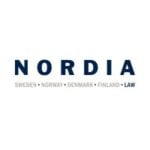-
What are the key financial crime offences applicable to companies and their directors and officers? (E.g. Fraud, money laundering, false accounting, tax evasion, market abuse, corruption, sanctions.) Please explain the governing laws or regulations.
In Brazil, criminal offences related to corporate fraud and the management of financial institutions apply exclusively to individuals, not to legal entities, and are primarily governed by Law No. 7,492/1986.
Article 4 of this law criminalises the fraudulent management of financial institutions. This offence involves the use of deceptive or dishonest practices by those in charge of managing such institutions. It applies to individuals who, in the exercise of their management duties, engage in deliberate fraud or conduct intended to mislead. The prescribed penalty is imprisonment for a term of three to twelve years, in addition to a fine. The sole paragraph of this article also criminalises reckless management, defined as the conduct of business with such imprudence or negligence as to significantly increase the risk of harm to third parties or the misuse of investor funds. The penalty for reckless management is two to eight years of imprisonment and a fine.
Article 5 covers the misappropriation or embezzlement of funds by managers or administrators of financial institutions. This offence occurs when such individuals appropriate or divert money, funds, or other movable assets for their own benefit or for the benefit of others. The applicable penalty is imprisonment for two to six years and a fine.
Under Article 9, it is an offence to defraud regulatory authorities or investors by including false or misleading information in documents that represent investments in securities or financial assets. Offenders are subject to imprisonment for one to five years, along with a fine.
Finally, Article 11 penalises the maintenance or management of financial resources or assets outside of legally required accounting records. This offence is punishable by imprisonment for one to five years, and a fine.
Regarding money laundering, it is classified as a criminal offence under Article 1 of Law No. 9,613/1998. The offence is defined as concealing or disguising the nature, origin, location, disposition, movement, or ownership of assets, rights, or values derived, directly or indirectly, from criminal activity.
Following the amendments introduced by Law No. 12,683/2012, the scope of predicate offences for money laundering was significantly broadened. Under the revised legislation, any criminal offence, whether classified as a crime or a misdemeanour, that may generate assets of illicit origin can serve as the basis for a money laundering charge. This removed the need for a predefined list of predicate offences and broadened the reach of enforcement.
The penalty for committing the crime of money laundering is imprisonment for a period ranging from three to ten years, in addition to the imposition of a fine.
Moreover, tax-related offences are primarily governed by Law No. 8,137/1990. Article 1 of the law defines crimes against the tax order as acts intended to suppress or reduce the payment of taxes and social contributions through fraudulent means. These include: omitting information or submitting false declarations to tax authorities; deceiving tax inspections by inserting incorrect information or omitting transactions in documents or records required by tax legislation; forging or altering invoices, receipts, bills of sale, or any document associated with taxable transactions; drafting, distributing, issuing, or using documents known or presumed to be false or inaccurate; and failing to issue, or issuing improperly, invoices or equivalent documents when required in connection with the sale of goods or services. The penalty for any of these offences is imprisonment for two to five years, in addition to a fine.
Concerning market abuse, Law No. 6,385/1976, under Article 27-C, defines the offence of market manipulation. This crime is characterised by the execution of simulated transactions or other fraudulent strategies intended to artificially influence the quotation, price, or trading volume of securities. The objective is to secure an undue advantage or profit for oneself or others, or to cause harm to third parties. The law imposes a penalty of imprisonment ranging from one to eight years, along with a fine that may reach up to three times the amount of the illicit gain obtained through the offence.
Lastly, Brazil’s Criminal Code, in the chapter dedicated to offences against Public Administration, criminalises the act of corruption. Article 333 defines active corruption as the act of offering or promising an undue advantage to a public official with the intention of inducing them to perform, omit, or delay an official act. This offence is punishable by imprisonment for two to twelve years and a fine. The sentence is increased by one-third if the advantage or promise results in the public official delaying, omitting, or carrying out an act in breach of their official duties. Brazilian law also criminalises active corruption of foreign public officials under Article 337-B, which is punishable by one to eight years of imprisonment, plus a fine.
-
Can corporates be held criminally liable? If yes, how is this determined/attributed?
As a rule, legal entities are not subject to criminal liability in Brazil, with the exception of environmental crimes. In such cases, liability arises only when the offence is committed by a legal or contractual representative, acting in the entity’s interest or for its benefit. Importantly, the criminal liability of a legal entity does not exclude the liability of the individuals involved. Nonetheless, the Supreme Federal Court (STF) has ruled that a legal entity can be prosecuted independently, even in the absence of charges against individual offenders.
There is no policy preference for pursuing legal entities over natural persons in criminal cases. If both are deemed liable, each will face criminal prosecution under the same legal framework.
-
What are the commonly prosecuted offences personally applicable to company directors and officers?
In Brazil, criminal liability is personal and non-transferable, based on the principle of culpability. However, company directors and officers may be held criminally liable for acts committed within the scope of their companies, provided they have contributed to the offence either wilfully (with intent) or negligently. Corporate officers and directors are commonly prosecuted in the following situations:
- Environmental Crimes: Law No. 9,605/1998 (Environmental Crimes Law) establishes the criminal liability of both individuals and legal entities. Shareholders and directors may be prosecuted for actions such as improper waste disposal or pollution, especially when they hold decision-making or managerial authority.
- Tax Crimes: tax offences, such as income omission or issuing false invoices, may lead to criminal liability for executives who directly participated in the conduct or were negligent in preventing it.
- Money Laundering and Corruption: involvement in money laundering schemes or the payment of bribes to obtain undue advantages can directly implicate shareholders and directors.
- Financial Crimes: offences involving the management of financial institutions, such as fraudulent bookkeeping, unauthorized operations, or misappropriation of funds.
Also, it is important to emphasize that the most complex and frequent form of criminal liability imposed on company directors and officers in Brazil often arises not from direct action, but from omission. Brazilian criminal law recognizes the concept of improper omission (also known as commission by omission), as provided in Article 13, §2 of the Penal Code.
Under this provision, an omission becomes legally relevant when the person had both the duty and the means to act in order to prevent the criminal outcome. Accordingly, directors, managing partners, and board members may be regarded as legal guarantors – that is, individuals who are legally obligated to prevent harm – when crimes occur within their sphere of management that could have been avoided through proper diligence.
-
Who are the lead prosecuting authorities which investigate and prosecute financial crime and what are their responsibilities?
In Brazil, financial crimes are prosecuted by the state, represented primarily by three authorities: the Civil Police, the Federal Police, and the Public Prosecution Office. These offences are adjudicated by judges in either State or Federal Courts, and, in some jurisdictions, there are specialized courts or panels dedicated to handling such cases.
Under Article 144 of the Brazilian Constitution, both the Civil Police and the Federal Police are in charge of maintaining public order and protecting individuals and property. The Civil Police is responsible for investigating criminal offences, excluding military crimes, within the states. The Federal Police, in addition to other roles, investigates crimes that impact the political and social order, the Union’s assets, services, and interests, as well as those affecting its autonomous agencies and public companies. It also handles offences with interstate or international implications requiring coordinated enforcement. Because financial crimes often involve these broader dimensions, the Federal Police frequently leads such investigations.
The Public Prosecution Office is the authority tasked with conducting criminal prosecutions. According to Article 127 of the Constitution, it is a permanent and essential institution responsible for upholding the legal order, the democratic regime, and the rights of society and individuals. It is represented by federal prosecutors in Federal Courts and state prosecutors in State Courts, who are responsible for initiating and pursuing criminal proceedings in white-collar cases.
Beyond these core criminal authorities, several administrative and civil bodies play roles in addressing related regulatory violations. For example, the Council for Financial Activities Control (COAF), under Articles 14 to 17 of the Anti-Money Laundering Law (Law No. 9,613/98), can investigate financial crimes and initiate administrative proceedings to impose sanctions.
When public officials are implicated, additional oversight bodies may become involved, such as the Office of the Comptroller General (CGU), which handles internal control, and the Federal Court of Accounts (TCU), which monitors public finances and budget execution.
Moreover, financial regulatory agencies such as the Central Bank of Brazil and the Brazilian Securities and Exchange Commission (CVM) are empowered under Law No. 13,506/17 (Articles 2 and 33) to initiate administrative sanctioning proceedings in response to financial misconduct. The Administrative Council for Economic Defence (CADE) also plays a key role, with authority under Articles 66 to 68 of the Competition Defence Law (Law No. 12,529/11) to investigate and sanction economic offences.
-
Which courts hear cases of financial crime? Are they determined by tribunals, judges or juries?
In Brazil, jurisdiction over financial crimes primarily lies with the Federal Courts, pursuant to Article 109 of the Constitution. These courts are competent to adjudicate offences that involve the national financial system, the economic and financial order, or interests, assets, or entities of the Federal Government, including federal autarchies and public companies. However, when the criminal conduct does not affect federal interests and pertains solely to local matters, State Courts exercise jurisdiction.
Therefore, the determination of the proper forum depends on a case-by-case assessment of the crime’s nature, the entities involved, and the scope of the harm caused.
These cases are initially adjudicated by judges, without the involvement of juries, as these are not jury-eligible offences under Brazilian criminal procedure. The proceedings begin in a trial court (first instance). If a conviction or acquittal is appealed, the case is then reviewed by a collegiate panel of judges in a court of second instance (appellate court), which reexamines both factual and legal aspects of the decision rendered at first instance.
In certain circumstances, criminal proceedings may begin directly in a higher court, such as the Superior Court of Justice (STJ) or the Federal Supreme Court (STF). This occurs when individuals holding specific public positions – such as governors, members of the Congress, or high-ranking federal authorities – benefit from special jurisdiction privileges. In such cases, these courts act as first instance courts, with the case bypassing lower trial courts entirely.
-
How do the authorities initiate an investigation? (E.g. Are raids common, are there compulsory document production or evidence taking powers?)
Investigations in Brazil can be triggered by complaints or reports from individuals, companies, or other entities. These may be submitted to authorities such as the Federal Police, the Public Prosecution Office, or regulatory bodies. Investigations may also arise from routine audits and inspections conducted by agencies like the Brazilian Securities and Exchange Commission (CVM), the Federal Revenue Service, and the Central Bank, which may uncover irregularities or signs of misconduct.
Additionally, the Federal Police can launch investigations based on intelligence reports, ongoing operations, or referrals from other government bodies. The Public Prosecution Office is also empowered to initiate investigations. According to the Supreme Federal Court, when it does so, the following requirements must be observed: (i) immediate notification to the competent judge of the initiation and conclusion of the investigation, with proper registration and case assignment; (ii) compliance with the same timelines and procedural rules that apply to police inquiries; and (iii) judicial authorization for any extensions of the investigative period.
Under Brazilian criminal law, judicial authorization is required to carry out dawn raids and execute search and seizure warrants, and such approval depends on the presence of probable cause. When an investigative authority determines that a search and seizure is necessary, it must formally request a warrant from a competent judge, presenting well-founded and specific justifications for the measure. A judge’s decision to authorize a search must clearly define the scope of the operation, specifying which documents, items, or materials are to be located and seized. The warrant must also outline the basis for the investigation and the objectives sought through the search.
-
What powers do the authorities have to conduct interviews?
In Brazil, during a criminal investigation, authorities such as the police and the Public Prosecutor’s Office are vested with specific legal powers to conduct interviews, commonly referred to as “depositions” or “statements”.
Pursuant to the Brazilian Code of Criminal Procedure, the police authority is empowered to summon individuals – whether suspects, witnesses, or victims – to provide statements in the context of a police inquiry. These interviews are generally conducted in the presence of the investigating officer and are formally documented in writing. Although witnesses are not obligated to appear voluntarily, a formal subpoena imposes a legal duty to attend. Noncompliance without justification may result in criminal liability for the offence of disobedience.
The Public Prosecutor’s Office also has authority to conduct interviews during criminal investigative proceedings initiated by the prosecution, particularly when acting independently of the police.
In all instances, the conduct of interviews must respect constitutional safeguards, including the right against self-incrimination, the right to legal counsel, and the right to be treated with dignity.
-
What rights do interviewees have regarding the interview process? (E.g. Is there a right to be represented by a lawyer at an interview? Is there an absolute or qualified right to silence? Is there a right to pre-interview disclosure? Are interviews recorded or transcribed?)
The interviewee has the right to be advised by a legal counsel during the interview, and the right to remain silent is constitutionally guaranteed in Brazil (art. 5, LXIII, of the Constitution). Prior to the interview, the lawyer, acting in the best interest of their client, has the right to broad access to any evidence already documented in the investigative proceedings conducted by an authority with judicial police powers, as such evidence relates to the exercise of the right to a defence. Furthermore, interviews must be either recorded or formally transcribed in written form, ensuring the accuracy and integrity of the proceedings.
-
Do some or all the laws or regulations governing financial crime have extraterritorial effect so as to catch conduct of nationals or companies operating overseas?
Brazilian criminal law may exercise extraterritorial jurisdiction under certain circumstances, particularly in cases involving financial crimes. Pursuant to Article 7 of the Brazilian Penal Code, crimes committed abroad may be prosecuted in Brazil when specific conditions are fulfilled, such as when the perpetrator is a Brazilian national.
Furthermore, Brazilian legislation permits the prosecution of certain offences regardless of the location where they were committed, especially when these crimes impact public administration, financial institutions, or involve offences such as money laundering or terrorist financing. This is particularly applicable when such cases are connected to international cooperation agreements.
Consequently, individuals may be held criminally liable in Brazil for conduct occurring abroad, notably when such conduct affects Brazilian interests, institutions, or the national financial system.
-
Do the authorities commonly cooperate with foreign authorities? If so, under what arrangements?
In Brazil, authorities frequently engage in cooperation with foreign authorities, particularly in the context of investigating and prosecuting financial crimes, corruption, money laundering, tax evasion, and transnational organised crime. This cooperation is supported by a robust legal framework and a combination of bilateral, multilateral, and institutional arrangements.
The Ministry of Justice and Public Security, through its Department of Asset Recovery and International Legal Cooperation (DRCI), acts as the central authority for mutual legal assistance in criminal matters. Cooperation typically occurs through Mutual Legal Assistance Treaties (MLATs) that provide frameworks for the exchange of evidence, witness testimony, asset freezing, and other investigative measures.
-
What are the rules regarding legal professional privilege? What, if any, material is protected from production or seizure by financial crime authorities?
Legal professional privilege is established in Article 7 of Law No. 8,906/94 and Article 35 of the Code of Ethics and Discipline of the Brazilian Bar Association (CEDOAB), which provide that lawyers have a duty to maintain confidentiality regarding facts they become aware of during their professional practice. This duty of confidentiality is broad in scope, covering not only matters learned in the context of contentious representation, but also in any typical legal activity, such as legal consulting, advisory services, legal management, and similar functions.
Thus, a lawyer may not breach confidentiality, even if prompted by public authorities or investigators, unless there is just cause. In this context, just cause refers to a legal duty, the exercise of a right, or necessity – such as the imperative need to exercise the right of self-defence or similar rights, in cases where the disclosure of confidential information is essential to protect the lawyer or third parties from unfounded accusations, for example. The Code of Ethics and Discipline cites, as examples of just cause, situations involving “serious threat to the right to life or to honour, or those involving self-defence” (Article 37). Outside of these exceptional situations, all communications and conversations between a lawyer and their client are protected by confidentiality.
The inviolability of lawyers is established in Article 7, item II, of Law No. 8,906/94, and protects the lawyer’s office or workplace, as well as their work tools, written, electronic, telephone, and telematic correspondence, provided they relate to the practice of law. Accordingly, any communication between lawyer and client is inviolable, whether via mail, telephone, email, WhatsApp, or any other similar means.
Inviolability is broader than confidentiality, as it does not only concern the duty of the recipient to keep the information confidential, but also protects it from third parties, including public authorities, who are prohibited from accessing data or documents in the possession of, or addressed to, the lawyer, even by court order. Thus, search and seizure warrant or orders to breach telephone or telematic confidentiality must exclude communications with the lawyer or documents delivered to them.
-
What rights do companies and individuals have in relation to privacy or data protection in the context of a financial crime investigation?
In Brazil, both companies and individuals are entitled to legal protections concerning privacy and personal data. However, these rights are not absolute and may be lawfully restricted in situations where they conflict with the public interest, particularly in the investigation and prosecution of criminal offences.
The Federal Constitution of Brazil guarantees the inviolability of privacy, as well as the confidentiality of private communications, including telephone and data transmissions, and personal data. Complementing these constitutional guarantees, the General Data Protection Law (Law No. 13.709/2018 – LGPD) establishes comprehensive rules governing the processing of personal data, applicable to both natural and legal persons.
Nonetheless, in the context of financial crime investigations, specific constitutional and statutory exceptions permit the restriction of privacy rights, provided that such measures are duly authorized by the judiciary. For instance, banking and tax secrecy may be lifted by means of a court order, and telephone and telematic interceptions are permitted under Law No. 9.296/1996, contingent upon judicial authorization and limited to investigations involving crimes with penalties exceeding two years of imprisonment.
Accordingly, access to sensitive information such as financial records, electronic communications, or other personal data generally requires prior judicial authorization, in compliance with constitutional principles of due process and legality.
-
Is there a doctrine of successor criminal liability? For instance in mergers and acquisitions?
As stated in Q1 and Q2, legal entities may only be held criminally liable for environmental offences. However, in the context of mergers or acquisitions that are not fraudulent, the Superior Court of Justice (STJ) has held that the criminal liability of a legal entity for an environmental offence is extinguished upon completion of the merger. This is because current legislation does not provide for the transfer of criminal liability to the successor entity in such transactions.
-
What factors must prosecuting authorities consider when deciding whether to charge?
When deciding whether to bring charges, prosecuting authorities must assess whether there is probable cause, that is, a minimum evidentiary foundation indicating both the occurrence of a criminal offence and the identification of its likely perpetrator. Thus, for the proper exercise of criminal prosecution, it is necessary to demonstrate that the accusation is neither frivolous nor unfounded, as it must be supported by at least a minimal evidentiary basis. This minimum evidentiary support relates to indications of authorship, the material existence of a criminal act, and some evidence of its unlawfulness and culpability. Only considering this body of evidence may the authorities proceed with charges.
In keeping with this requirement, Article 41 of the Code of Criminal Procedure establishes that, for a criminal complaint to be valid, it must contain a description of the criminal act, including all its circumstances, the identification of the accused or sufficient information to enable their identification, and the legal classification of the offence.
-
What is the evidential standard required to secure conviction?
To secure a conviction in Brazil, the judge must be satisfied that the defendant’s guilt has been proven to the requisite legal standard. In criminal proceedings, this standard is proof beyond a reasonable doubt, meaning the judge must be firmly convinced, based on the entirety of the evidence presented at trial, that the accused committed the offence. The burden of proof relies entirely on the prosecuting authority, which must produce sufficient evidence to overcome the presumption of innocence. If any reasonable doubt remains as to the defendant’s guilt, the constitutional presumption of innocence prevails, and the defendant must be acquitted.
-
Is there a statute of limitations for criminal matters? If so, are there any exceptions?
Under Brazilian criminal procedure, statutes of limitations are classified into two types: the statute of limitations for punitive claims, which applies before a final judgment is rendered, and the statute of limitations for enforcement claims, which applies after the judgment becomes final.
The statute of limitations for punitive claims is determined by the maximum prison sentence provided for the offence, in accordance with the timeframes set forth in Article 109 of the Brazilian Criminal Code.
As a rule, the statute of limitations begins to run from the date on which the offence is completed. However, in the case of continuing offences, the limitation period begins only from the date the unlawful conduct ceases. Furthermore, Article 117 of the Criminal Code identifies certain events that interrupt the limitation period, such as the receipt of the indictment, the issuance of a conviction, and the beginning of sentence execution. Each of these events resets the limitation period.
The statute of limitations for enforcement claims, on the other hand, applies after the final judgment of conviction. It is calculated based on the actual sentence imposed and follows the same time limits established in Article 109 of the Criminal Code.
-
Are there any mechanisms commonly used to resolve financial crime issues falling short of a prosecution? (E.g. Deferred prosecution agreements, non-prosecution agreements, civil recovery orders, etc.) If yes, what factors are relevant and what approvals are required by the court?
Under Article 89 of Law No. 9,099/1995, in cases where the offence carries a minimum penalty of one year or less, the Public Prosecutor may, upon filing the indictment, propose a suspension of the criminal proceedings for a period ranging from two to four years. This option is available provided that the defendant is not currently being prosecuted for another offence and does not have a prior criminal conviction. During the suspension period, the defendant is subject to a probationary regime that may include conditions such as compensating the victim for damages, unless doing so is impossible; refraining from frequenting certain places; remaining within the jurisdiction unless authorised by the court to leave; and appearing personally before the court monthly to report and justify their activities.
Also, Article 28-A of the Brazilian Criminal Procedure Code provides for non-prosecution agreements in cases where the minimum statutory penalty is less than four years of imprisonment and the offence was not committed through violence or serious threat. To be eligible for such an agreement, the defendant must confess to the crime, repair the resulting harm, relinquish any property used in or derived from the criminal act, and comply with any additional conditions imposed by the Public Prosecutor’s Office.
-
Is there a mechanism for plea bargaining?
Law No. 12,850/2013, as amended by Law No. 13,964/2019, introduced the legal framework for plea bargaining in Brazil (referred to as colaboração premiada). This mechanism allows individuals suspected of involvement in criminal activities to cooperate with authorities by providing information that may assist in uncovering criminal organisations or illicit conduct. The goal is to enhance investigative efforts through insider collaboration.
When entering into a plea agreement, the individual (referred to as the collaborator) must do so in the presence of legal counsel and formally waive the right to remain silent. They are legally obliged to tell the truth throughout the process. Additionally, the agreement presumes that the collaborator will cease all involvement in unlawful activities related to the subject of the cooperation; failure to do so may result in the termination of the agreement.
To qualify for the benefits associated with plea bargaining, the collaborator must demonstrate the effectiveness of their cooperation by fulfilling at least one of the conditions set forth in Article 4 of Law No. 12,850/2013. These include the identification of other participants and their respective roles in the criminal organisation; the revelation of the organisation’s hierarchical structure and internal division of tasks; the prevention of further criminal acts; the recovery of assets or proceeds derived from criminal activity; and the location of victims while preserving their physical integrity.
Upon meeting one or more of these criteria, the collaborator may be eligible for certain legal benefits, also provided under Article 4. These benefits include judicial pardon, which extinguishes criminal liability; a reduction of the prison sentence by up to two-thirds; or the substitution of a custodial sentence with a restrictive sanction. In specific circumstances, such as when the prosecutor chooses not to bring charges in cases involving previously unknown offences, procedural immunity may be granted, provided the collaborator is neither the leader of the organisation nor a repeat offender, and is the first to provide effective assistance.
Furthermore, if cooperation occurs after sentencing, the law allows for a reduction of the sentence by up to half or permits progression to a less restrictive prison regime, even if statutory requirements for progression have not been met.
-
Is there any obligation to disclose discovered misconduct to prosecuting authorities, or any benefit to making a voluntary disclosure? Is there an established route or official guidance for making such disclosures?
In Brazil, there is no general legal obligation for individuals or private entities to report discovered misconduct to prosecuting authorities. However, in specific regulated sectors, such as financial institutions, there are reporting duties, particularly when dealing with suspicious transactions.
Despite the lack of a universal obligation, Law No. 13,608/2018 establishes protection and rewards to individuals that report relevant information regarding crimes against Public Administration, administrative offences or any actions or omissions harmful to public interest. To file an anonymous report as a whistleblower, individuals may use online platforms, which allows individuals to submit complaints or reports without revealing their identity. Additionally, there is a hotline that also offers a secure and anonymous channel for reporting misconduct or criminal activity. These tools are designed to protect the whistleblower’s identity and promote safe and confidential reporting.
Once the report is deemed reasonable by the ombudsman or internal affairs unit and is forwarded for investigation, the whistleblower shall be granted full protection against retaliation and exemption from civil or criminal liability in connection with the report. Monetary rewards may also be granted.
-
What rules or guidelines determine sentencing? Are there any leniency or discount policies? If so, how are these applied?
Sentencing in Brazil is governed by a structured and legally defined framework aimed at ensuring the individualization of punishment in accordance with the specific circumstances of the offence and the defendant. The rules on sentencing are primarily set out in Articles 59 to 71 of the Penal Code and follow a three-phase sentencing method, which must be applied by the judge when determining the appropriate penalty.
In the first phase, the judge establishes the base sentence within the statutory limits for the offence, considering the so-called judicial circumstances listed in Article 59. These include culpability, prior criminal record, social conduct, motives, consequences of the crime, and the victim’s behaviour.
Moreover, in the second phase, the judge assesses the existence of aggravating or mitigating factors, as provided in Articles 61 and 65 of the Penal Code. Aggravating factors include recidivism, abuse of authority, or committing a crime against a lineal ascendant or descendant, sibling, or lawful spouse. Mitigating factors include, among others, voluntary confession, being under 21 years old at the time of the offence or having acted under strong emotional disturbance.
Finally, in the third phase, the judge applies any specific legal causes for increasing or reducing the sentence, as established by the Penal Code or special criminal laws. Examples include continuous crime (Article 71) or attempted crimes (Article 14, II), respectively.
-
How are compliance procedures evaluated by the prosecuting authorities and how can businesses best protect themselves?
In Brazil, compliance procedures are carefully evaluated by prosecuting authorities, particularly under the framework of Law No. 12.846/2013. A company’s compliance program can directly influence the outcome of enforcement actions, including the severity of administrative penalties, the possibility of entering into leniency agreements, and the company’s continued eligibility to contract with the public sector.
The criteria for evaluating compliance programs are outlined in Decree No. 11.129/2022, which regulates the Law No. 12.846/2013. Brazilian authorities – such as the Office of the Comptroller General (CGU), the Attorney General’s Office (AGU), and the Federal Prosecutor’s Office (MPF) – assess whether a compliance program is not just in place but also effective and tailored to the company’s specific risk profile.
Key elements of a strong compliance program include a clear commitment from senior management, adequate risk management, well-documented codes of conduct, precise accounting records, proper due diligence, and effective whistleblower reporting channels. Authorities also expect companies to deliver ongoing training, enforce disciplinary measures consistently, and demonstrate continuous improvement through monitoring and internal audits.
In summary, while there is no legal obligation for companies to report misconduct in Brazil, an effective compliance program is essential to reducing legal exposure and maintaining good standing with public and regulatory authorities.
-
What penalties do the courts typically impose on individuals and corporates in relation to the key offences listed at Q1?
Brazilian legislation provides for strict penalties for individuals involved in financial and economic crimes. Courts typically impose the following sanctions, depending on the severity of the conduct, the role of the offender, and any aggravating or mitigating circumstances:
- Fraudulent management of financial institutions: punishable by imprisonment of three to twelve years, along with a fine.
- Reckless management: sanctioned with imprisonment from two to eight years, plus a fine.
- Misappropriation or embezzlement of funds by managers or administrators of financial institutions: this conduct is subject to imprisonment from two to six years, in addition to a fine.
- Money laundering: punished with three to ten years of imprisonment, along with a fine.
- Tax-related offences (e.g., tax evasion or fraudulent declarations): these are penalized with imprisonment of two to five years, plus a fine.
- Market abuse (e.g., insider trading, price manipulation): offenders may be sentenced to one to eight years in prison, with a fine that can reach up to three times the amount of the illicit gain.
- Active corruption: sanctioned with two to twelve years of imprisonment, plus a fine.
- Active corruption of foreign public officials: this specific form of corruption is punishable by one to eight years of imprisonment, in addition to a fine.
-
What rights of appeal are there?
Under Brazilian criminal procedure, a convicted person has access to several appellate mechanisms to challenge judicial decisions rendered against them. These remedies vary depending on the nature of the decision being contested (such as a judgment, ruling, or interlocutory decision), as well as the procedural stage.
The appeal (apelação) is the primary remedy against a conviction rendered by a first-instance judge. Provided for in Article 593 of the Code of Criminal Procedure (CPP), it must be filed within five days and is reviewed by the State Court of Appeals (Tribunal de Justiça) or the Federal Regional Court (Tribunal Regional Federal), depending on jurisdiction.
Motions for clarification (embargos de declaração) aim to resolve ambiguity, contradiction, omission, or material error in a judicial decision. Provided for in Article 619 of the CPP, they may be filed within two days and are applicable to judgments, appellate decisions, or single-judge rulings.
The motion for review in strict sense (recurso em sentido estrito), provided for in Article 581 of the CPP, is applicable against specific interlocutory decisions, such as, decisions concerning jury trial pronouncements, or the granting or revocation of provisional release. The deadline to file this motion is also five days.
Infringement motions (embargos infringentes), governed by the sole paragraph of Article 609 of the CPP, may be filed when a non-unanimous appellate decision overturns a trial court judgment. In such cases, the dissenting party may request a reexamination of the contested issue by an extended bench. The deadline for filing is ten days.
In addition to ordinary appeals, the Brazilian legal system provides for extraordinary appeals to the higher courts. The special appeal (recurso especial), based on Article 105, III of the Constitution, is addressed to the Superior Court of Justice (STJ) and is intended to challenge decisions that violate federal law. The extraordinary appeal (recurso extraordinário), governed by Article 102, III of the Constitution, is filed with the Federal Supreme Court (STF) and requires a demonstration of a direct violation of the Constitution, in addition to general repercussions. Both appeals must be filed within fifteen days following the appellate court’s decision.
In parallel to these formal remedies, the convicted person may file a habeas corpus, a constitutional action designed to protect personal liberty when it is threatened or violated due to illegality or abuse of power. Habeas corpus may be filed at any time, by any person.
Lastly, even after the conviction becomes final and unappealable, it is possible to seek a motion for criminal review (revisão criminal), as established in Article 621 of the CPP. This is an autonomous legal action intended to review a final conviction in cases where the judgment is contrary to the express provisions of criminal law or to the evidence on record; where the conviction is based on testimonies, expert reports, or documents later proven to be false; or where new evidence emerges after the conviction that either demonstrates the defendant’s innocence or reveals circumstances warranting or authorizing a special reduction of the sentence. There is no statute of limitations for filing a criminal review.
-
How active are the authorities in tackling financial crime?
In Brazil, authorities have become significantly more active in combating financial crime in the past decades. Agencies such as the Federal Police, the Public Prosecutor’s Office, and the Council for Financial Activities Control (COAF) play a central role in investigating and prosecuting crimes like money laundering, corruption, and tax evasion.
Despite progress, challenges remain, including limited resources and judicial delays. However, Brazil continues to strengthen its legal framework and improve cooperation with international bodies to enhance transparency and accountability in financial matters.
-
In the last 5 years, have you seen any trends or focus on particular types of offences, sectors and/or industries?
Over the past five years, law firms in Brazil have seen a notable increase in criminal cases related to both the capital markets and the gaming sector. In the capital markets, there has been a focus on investigations involving insider trading, market manipulation, and irregularities in public disclosures. Regulatory scrutiny has also expanded to include fintech, digital platforms, and crypto-assets, prompting firms to advise clients on compliance, risk assessment, and enforcement defence strategies in these areas.
In the gaming industry, particularly with the regulation of fixed-odds sports betting, law firms have been increasingly involved in assisting clients with regulatory licensing, compliance with anti-money laundering (AML) standards, and the development of internal controls. There has also been a rise in advisory work related to integrity measures and fraud prevention, especially as online gaming and e-sports gain traction.
Overall, legal practices have observed a shift toward more complex and specialized matters in these sectors, reflecting not only regulatory developments but also greater enforcement activity and investor sensitivity to governance and transparency issues.
-
Have there been any landmark or notable cases, investigations or developments in the past year?
In September 2024, the Operation Integration was launched, aiming to uncover alleged money laundering schemes and financial irregularities linked to the sports betting and entertainment sectors. The operation targeted business owners, digital influencers, and artists suspected of handling illicit funds through advertising and sponsorship contracts.
Authorities executed 19 arrest warrants and 24 search and seizure orders. The operation resulted in the freezing of nearly R$3 billion in financial assets believed to originate from money laundering activities. According to the investigation, the alleged criminal organisation made use of multiple event companies, advertising agencies, currency exchange offices, and insurance firms to launder money through bank deposits and transactions.
According to the authorities, the laundering methods included structured cash deposits, bank transfers between suspects followed by immediate cash withdrawals, and purchases of high-value assets such as luxury vehicles, aircraft, boats, jewellery, high-end watches, and hundreds of real estate properties. Public security agents uncovered atypical financial activity involving both individuals and businesses, indicating evidence of financial crimes carried out without any legitimate basis for the commercial or financial transactions made by the group. The case is yet to be solved.
Another high-profile case involves one of Brazil’s largest retail groups. In April 2025, the Federal Public Prosecutor’s Office in Brazil formally charged 13 former executives and employees of Lojas Americanas for their involvement in a financial fraud scheme that may have caused losses exceeding R$ 25 billion. The case first surfaced in January 2023, when the company disclosed accounting irregularities amounting to R$ 20 billion. Further analysis of its financial situation revealed total debts of approximately R$ 40 billion.
Just eight days after the irregularities were revealed, Americanas filed for judicial recovery, marking the fourth-largest bankruptcy proceeding in Brazilian history. The severity of the crisis prompted swift responses from regulatory agencies, including the Securities and Exchange Commission of Brazil (CVM), and the Federal Public Prosecutor’s Office, both of which launched investigations to determine civil, administrative, and criminal liabilities.
As part of the investigation process, Lojas Americanas and the CVM provided documents and information to prosecutors to assist in clarifying the facts and advancing the inquiry. Several plea bargain agreements were signed with former employees, allowing investigators to identify those responsible and understand the full extent of the fraud.
The Federal Police classified the case as the largest accounting fraud in the history of Brazil’s financial market, with estimated damages of R$ 25.3 billion. The crimes under scrutiny include market manipulation, insider trading, organised crime, and money laundering – allegedly committed by former directors and executives of the company.
-
Are there any pending or proposed changes to the legal, regulatory and/or enforcement framework?
A bill is currently under review in Brazil’s National Congress that seeks to introduce the criminal offence of breach of fiduciary duty (infidelidade patrimonial) into the Brazilian Penal Code. The proposed offence would apply to individuals who, having been entrusted – by law, legal order, or contractual agreement – with the administration of another person’s assets, abuse their powers with the intent to obtain any type of advantage for themselves or third parties, in violation of their duty to safeguard the entrusted property, thereby causing harm to the managed assets. The proposed penalty for this crime is imprisonment from one to five years, in addition to a fine.
Also, another bill currently under review in the Chamber of Deputies that aims to amend Law No. 7,492/1986 (the Financial Crimes Law). Among the proposed changes, a key revision involves the redefinition of the offence of fraudulent management, with the objective of providing a clearer legal description of the criminal conduct. The amendment seeks to restrict the offence specifically to the administration of financial institutions, thereby excluding management actions that do not constitute actual administrative duties. Under the proposed new wording, the offence would be defined as: “Administering a financial institution in repeated violation of applicable legal provisions, with the intent of obtaining unlawful gain for oneself or for others”.
The bill also proposes changes to the offence of reckless management, aiming to provide a more precise legal framework and to reduce the vagueness of the term “reckless.” The revised offence would be defined as: “Carrying out an operation that entails a level of risk not permitted under the legislation governing the national financial system, thereby exposing the institution to the risk of significant loss”.
Together, these legislative initiatives reflect a broader effort by Brazilian lawmakers to modernize and refine the country’s criminal legal framework, particularly in areas concerning the management of third-party assets and financial institutions. By introducing the specific offence of breach of fiduciary duty and by clarifying the definitions of fraudulent and reckless management, the proposed reforms aim to enhance legal certainty, close enforcement gaps, and strengthen the accountability of individuals entrusted with fiduciary or managerial responsibilities. If enacted, these changes would represent a significant step toward aligning Brazil’s legal system with international best practices in financial and corporate governance.
-
Are there any gaps or areas for improvement in the financial crime legal framework?
There are still some notable gaps in Brazil’s financial crime legal framework, particularly when it comes to emerging or non-traditional assets such as airline miles and rewards program points. While these programs have grown significantly, the legal and regulatory treatment of such assets remains underdeveloped.
In recent years, there has been an increase in fraud and misuse involving loyalty programs, especially schemes related to the unauthorized sale or transfer of miles and the laundering of criminal proceeds through rewards platforms. Despite these risks, the current legal framework does not clearly classify airline miles or reward points as financial assets, which can create challenges for law enforcement and for companies trying to implement effective compliance and reporting mechanisms.
There is a growing recognition that regulatory guidance or legislative updates may be necessary to address this gap, particularly as rewards ecosystems continue to expand and integrate with digital payment solutions. Improved oversight and legal clarity in this area would enhance the ability to prevent and prosecute financial crimes involving these increasingly valuable non-cash instruments.
Brazil: White Collar Crime
This country-specific Q&A provides an overview of White Collar Crime laws and regulations applicable in Brazil.
-
What are the key financial crime offences applicable to companies and their directors and officers? (E.g. Fraud, money laundering, false accounting, tax evasion, market abuse, corruption, sanctions.) Please explain the governing laws or regulations.
-
Can corporates be held criminally liable? If yes, how is this determined/attributed?
-
What are the commonly prosecuted offences personally applicable to company directors and officers?
-
Who are the lead prosecuting authorities which investigate and prosecute financial crime and what are their responsibilities?
-
Which courts hear cases of financial crime? Are they determined by tribunals, judges or juries?
-
How do the authorities initiate an investigation? (E.g. Are raids common, are there compulsory document production or evidence taking powers?)
-
What powers do the authorities have to conduct interviews?
-
What rights do interviewees have regarding the interview process? (E.g. Is there a right to be represented by a lawyer at an interview? Is there an absolute or qualified right to silence? Is there a right to pre-interview disclosure? Are interviews recorded or transcribed?)
-
Do some or all the laws or regulations governing financial crime have extraterritorial effect so as to catch conduct of nationals or companies operating overseas?
-
Do the authorities commonly cooperate with foreign authorities? If so, under what arrangements?
-
What are the rules regarding legal professional privilege? What, if any, material is protected from production or seizure by financial crime authorities?
-
What rights do companies and individuals have in relation to privacy or data protection in the context of a financial crime investigation?
-
Is there a doctrine of successor criminal liability? For instance in mergers and acquisitions?
-
What factors must prosecuting authorities consider when deciding whether to charge?
-
What is the evidential standard required to secure conviction?
-
Is there a statute of limitations for criminal matters? If so, are there any exceptions?
-
Are there any mechanisms commonly used to resolve financial crime issues falling short of a prosecution? (E.g. Deferred prosecution agreements, non-prosecution agreements, civil recovery orders, etc.) If yes, what factors are relevant and what approvals are required by the court?
-
Is there a mechanism for plea bargaining?
-
Is there any obligation to disclose discovered misconduct to prosecuting authorities, or any benefit to making a voluntary disclosure? Is there an established route or official guidance for making such disclosures?
-
What rules or guidelines determine sentencing? Are there any leniency or discount policies? If so, how are these applied?
-
How are compliance procedures evaluated by the prosecuting authorities and how can businesses best protect themselves?
-
What penalties do the courts typically impose on individuals and corporates in relation to the key offences listed at Q1?
-
What rights of appeal are there?
-
How active are the authorities in tackling financial crime?
-
In the last 5 years, have you seen any trends or focus on particular types of offences, sectors and/or industries?
-
Have there been any landmark or notable cases, investigations or developments in the past year?
-
Are there any pending or proposed changes to the legal, regulatory and/or enforcement framework?
-
Are there any gaps or areas for improvement in the financial crime legal framework?


















